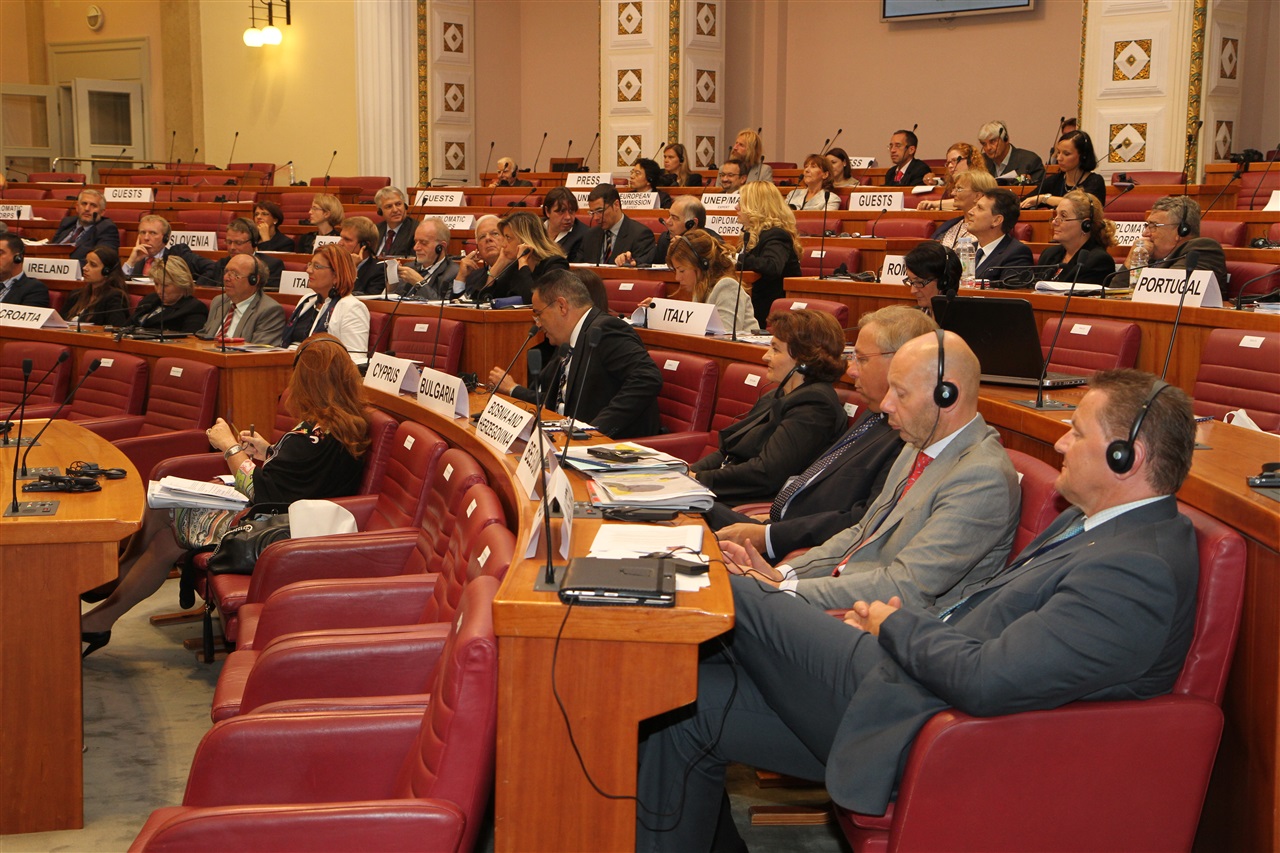
Zagreb - In the final part of the plenary session, the first part of which was held in Zagreb, the participants were addressed by representatives of international organisations, with the central topic being the importance of integrating different policies in the development of sustainable tourism.
Jin Yung Woo, Adviser to the UNWTO Secretary General on Tourism and Culture referred in his address to the importance of strengthening the nexus between tourism and culture. Tourism can contribute to culture in different ways, one of which is the tourist presentation of cultural heritage, especially in sites inscribed on the UNESCO List of World Heritage Sites. On the other hand, culture can also contribute to tourism through the development of new forms of tourist offer, cultural routes or digitalisation of cultural heritage in the form of tourist products, Woo added. He said that UNWTO and UNESCO already took this direction by signing a Memorandum of Understanding in 2013. Thereby they agreed on joint operation through national, regional and global initiatives in the fields of sustainable tourism and preservation of natural and cultural heritage. Woo announced the joint conference of UNWTO and UNESCO ”Tourism and Culture – A New Partnership” that will be held in February 2015 in Cambodia.
During the plenary session the participants were also addressed by Ms. Željka Škaričić, Programme Officer of the UNDP, Director of Priority Actions Programme/Regional Activity Center (PAP/RAC). – In many countries of the Mediterranean, major tourist interventions cause numerous negative effects in the coastal zones – landscape alterations, water pollution and over-exploitation of natural resources, said Škaričić. In order to avoid this, integrated caostal zone management must be applied by coordinating tourism development, spatial and environmental protection plans, so Škaričić. She also stressed the importance of the implementation of the ICZM Protocole signed in 2008, providing guidelines and recommendation for the protection and sustainable development of coastal areas.
Franz Lamplamair, Adviser at the EC Directorate General for Maritime Affairs and Fisheries, welcomed the organisation of this Conference and stressed the importance of cooperation between national parliaments in the field of sustainable tourism as well as the exchange of experiences. He said that the European Commission supported all valuable initiatives and projects of EU Member States and invited them, if meeting the stipulated criteria, to use EU funds for their implementation. Just like the previous speakers, he reiterated the importance of implementing an integrated policy that creates the conditions for strengthening the potential of ”Blue Economy”. Lamplamair stressed that, according to the data from 2012, the segments of ”Blue Economy” tourism, energy, fisheries, shipbuidling and transportation employed 5,4 million people, with prospects of an increase to 7 million jobs by 2020.
The work of the Conference will resume tomorrow in Mali Lošinj, when in the evening hours if will be officially closed.
Photogallery https://www.flickr.com/photos/127497980@N04/
Official Web Site: http://www.sabor.hr/europska-meduparlamentarna-konferencija